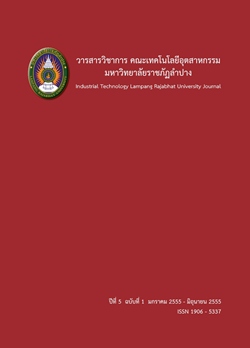การบังคับใช้พระราชบัญญัติควบคุมอาคาร พ.ศ. 2522 ตามหลักปรัชญา เศรษฐกิจพอเพียงขององค์กรปกครองส่วนท้องถิ่นจังหวัดเพชรบุรี และจังหวัดประจวบคีรีขันธ์
Keywords:
หลักปรัชญา, การบังคับใช้พระราชบัญญัติ, ควบคุมอาคาร, Philosophy, law enforcement, building controlAbstract
การวิจัยครั้งนี้มีวัตถุประสงค์เพื่อ 1) ศึกษาการบังคับใช้พระราชบัญญัติควบคุมอาคาร พ.ศ. 2522 ตามหลักปรัชญาเศรษฐกิจพอเพียงขององค์กรปกครองส่วนท้องถิ่น จังหวัดเพชรบุรี และจังหวัดประจวบคีรีขันธ์ และ 2) เปรียบเทียบการบังคับใช้พระราชบัญญัติควบคุมอาคาร พ.ศ. 2522 ตามหลักปรัชญาเศรษฐกิจพอเพียงระหว่างองค์กรปกครองส่วนท้องถิ่น จังหวัดเพชรบุรี และจังหวัด ประจวบคีรีขันธ์ จำแนกตามปัจจัยส่วนบุคคล กลุ่มตัวอย่างที่ใช้ในการศึกษาครั้งนี้คือ บุคลากรที่ใช้ พระราชบัญญัติควบคุมอาคาร พ.ศ. 2522 ขององค์กรปกครองส่วนท้องถิ่นจังหวัดเพชรบุรี และจังหวัด ประจวบคีรีขันธ์ประกอบด้วย ผู้บริหาร และเจ้าหน้าที่ส่วนโยธา จำนวน 338 คน โดยการสุ่มตัวอย่าง แบบแบ่งชั้นตามสัดส่วน เครื่องมือที่ใช้ในการเก็บรวบรวมข้อมูลเป็นแบบสอบถามมาตราส่วนประมาณ ค่า 5 ระดับ สถิติที่ใช้ในการวิเคราะห์ข้อมูล ได้แก่ ค่าร้อยละค่าเฉลี่ย ส่วนเบี่ยงเบนมาตรฐานการทดสอบ ทีโดยทดสอบรายคู่ด้วยวิธีของแอลเอสดี
ผลการวิจัยพบว่า
1. ผลการใช้โดยรวมอยู่ในระดับปานกลาง เมื่อพิจารณารายด้าน พบว่า มีค่าเฉลี่ยอยู่ในระดับมาก 1 ด้าน ได้แก่ ด้านลักษณะขององค์กร รองลงมา มีค่าเฉลี่ยอยู่ในระดับปานกลาง 2 ด้าน ได้แก่ ด้านกลยุทธ์การบริหารจัดการในองค์กร และด้านการปฏิบัติตามอำนาจหน้าที่
2. ผลการเปรียบเทียบความคิดเห็นของบุคลากรต่อการบังคับใช้พระราชบัญญัติควบคุม อาคาร พ.ศ. 2522 ตามหลักปรัชญาเศรษฐกิจพอเพียงขององค์กรปกครองส่วนท้องถิ่น จังหวัดเพชรบุรี และจังหวัดประจวบคีรีขันธ์ ด้านอายุ ระดับการศึกษา ตำแหน่งหน้าที่ ประสบการณ์ในการทำงาน และที่ตั้งหน่วยงาน แตกต่างกัน มีความคิดเห็นต่อการบังคับใช้พระราชบัญญัติควบคุมอาคาร พ.ศ. 2522 ตามหลักปรัชญาเศรษฐกิจพอเพียงขององค์กรปกครองส่วนท้องถิ่น จังหวัดเพชรบุรีและจังหวัด ประจวบคีรีขันธ์ โดยรวมทุกด้านแตกต่างกัน
ข้อค้นพบจากงานวิจัยคือ การบังคับใช้พระราชบัญญัติควบคุมอาคาร พ.ศ. 2522 ตามหลักปรัชญา เศรษฐกิจพอเพียงมี 3 ด้าน ประกอบด้วย 1. ด้านลักษณะขององค์กร 2. ด้านกลยุทธ์การบริหารจัดการ งานในองค์กร 3. ด้านการปฏิบัติตามอำนาจหน้าที่ โดยมีข้อเสนอแนะดังนี้การบรรจุ แต่งตั้งเจ้าหน้าที่ต้อง ให้เพียงพอต่อการบริการ ส่งเสริมความรู้ให้บุคลากร ด้านกฎหมายในการควบคุมอาคาร ให้บุคลากรปฏิบัติหน้าที่ภายใต้การบังคับใช้พระราชบัญญัติควบคุมอาคาร พ.ศ.2522 อย่างเคร่งครัด มีความยืดหยุ่น มีมาตรการลงโทษที่เหมาะสมและสอดคล้องกับความผิดตามบทบัญญัติ
Enforcement of the Building Control Act 2522 in line with the sufficiency economy philosophy by local administration organizations, Petchaburi Provinceand Prachuap Khiri Khan Province
The purposes of the study were to (1) study the enforcement of the Building Control Act 2522 according to the sufficiency economy philosophy at local administration organizations in Phetchaburi Province and Prachuap Khiri Khan Province and to (2) compare the enforcement of the Act between the two offices in light of personal factors. The populations of the study were 338 personnel from the two local administration organizations including mayors, chief executives, clerks, heads of department and officials. All were obliged to follow the Act. The research tool consisted on questionnaires on a five-level scale. The data were analyzed by means of frequency statistics percentage, standard deviation, t-test, analysis of variance (ANOVA) and least significant difference (LSD).
The findings were as follows:
1) The overall enforcement of the Building Control Act 2522 according to the sufficiency economy philosophy between the two offices was at a moderate level. When divided into different sections, the enforcement of organization characteristics was at a high level while the enforcement of the strategic administration and the working practices were at a moderate level.
2) The opinions’ of personnel towards the Act varied according to age, educational background, position, work experience and office location.
The result showed that the enforcement of the Building Control Act 2522 according to the sufficiency economy philosophy could be divided into 3 components which are (1) the organization characteristics, (2) the strategic administration within the organization, and (3) the working practices of the official authorities. In order to improve the enforcement of the Act, there should be enough officials to fulfill the duties, staff should be well-informed about the Act and the law should be used accordingly.






